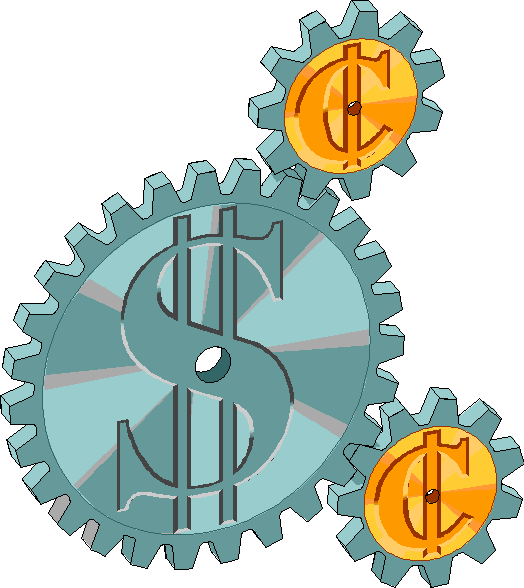Eco-no-money
Technorati tags: Economy, Cost Of Living, Fuel, Subsidized Economy
 Basing on the way the Malaysian Government drastically implemented the new fuel pricing a couple of days ago, one could almost be forgiven if they thought the Treasury was running dry.
Basing on the way the Malaysian Government drastically implemented the new fuel pricing a couple of days ago, one could almost be forgiven if they thought the Treasury was running dry.
Walski, for one agrees that we need to be weaned off of subsidies. With that, he has no beef. What troubles him most is the way that it's being managed. Or more accurately, mis-managed.
The biggest joke is what our PM said in relation to the fuel price increase (hat-tip to Lucia Lai, emphasis by myAsylum):
"The cost of petrol and commodities has risen drastically and so subsidies have to be restructured," he told a press conference.
"God willing I hope Malaysians will not demonstrate over this," he said, referring to fury over earlier hikes in a country where public transport is poor and most people are reliant on their cars.
(source: Malaysiakini - subscription required)
Really... just how naively in blind denial can one man be?
(the economy in a state, and more, in the full post)
Speaking of public transportation, what's happened to the promises of improvement made after the last fuel price hike in 2006? Has anything public transportation-wise improved in the last two years?
Well, let's see... traffic in the major urban areas (like Klang Valley, Penang and Johor Baru) hasn't improved. In fact, for Klang Valley, Walski dares say it has worsened in the last couple of years - which indicates that most people are not opting to use public transportation. From a visual perspective, Walski sees just as many (if not fewer) buses on the road these days.
The rail-based transit lines have not expanded any, nor are there any expansions put into motion, from what Walski can observe. A major purchase of rail cars to increase the Kelana Jaya line capacity, was made in 2006, but the trains aren't expected to be delivered until sometime between July and December this year. This, too, only means that there will be a higher frequency of trains for that line. Nothing, it seems, has been done to increase coverage, per se.
So, okay... we need to start paying market prices for the fuel we use. How about being able to pay market prices for the vehicles we drive? In Malaysia, that certainly is not the case. Plus, in the Klang Valley, there is the further burden of tolls - unless you want to spend even more time on the road getting from point A to point B.
Now that fuel subsidies have been reduced, resulting in higher fuel prices, guess what? Electricity prices also gets jacked up, by around 18% for domestic use, and an average of 26% for industrial use (via Malaysiakini). This then translates to higher production cost for goods, which the manufacturer will automatically dump onto the consumers.
But the price of crude oil (hence consumer fuel) can't keep spiralling out of control as they seem to be doing now. This week the price of crude increased to almost USD 140 per barrel. And it's bound to drop at some point - which raises the question, will the price of fuel we have to pay for also drop?
At present, the Government has stated that it will give a 30 sen per liter "discount" (read: subsidy) off the actual price. Walski maintains that if the Government is serious about wanting to wean the people off of subsidies, start by keeping its word for a change. Yes, 30 sen a liter off is a reasonable proposition, provided that it's applied consistently.
Which means that if the real price gets lower than RM 3.00, we can expect to see a pump price reduction in tandem.
But more so, it's time the Government also weaned off certain "protected" corporations off of subsidies - let the people pay real market prices for vehicles, for example. Sure, our neighbors to the north, Thailand pay more for their fuel, but they pay a lot less to purchase vehicles, and there aren't as many tolled highways to further burden the people. Similarly, our neighbors to the south, Singapore, have a stronger currency, better public transportation and generally higher per capita salaries.
Otherwise, any comparison to our neighbors simply isn't apple-to-apple, and therefore meaningless. These facts are usually left out when our politicians
Malaysians may have seen a per capita income rise from "RM1,169 per month in 1990 to RM3,249 a month in 2004" (page 2 of the speech made during the tabling of the 9th Malaysia Plan, on March 31 2006). But at the same time, how much has the cost of living increased since 1990?
The economy may have improved (to some extent), but we sure don't have the extra money to prove it... and now with the new fuel prices, and subsequent increase in everything else, we're going to have even less.
Incidentally, Walski's also started another poll: is our economy being managed in the best possible way? Or not?
















